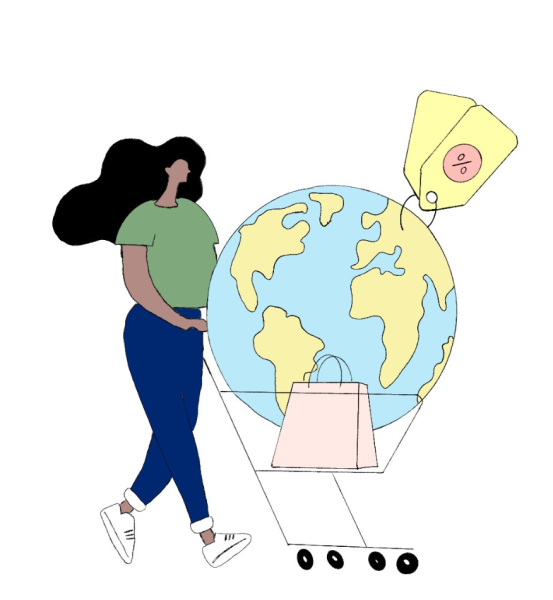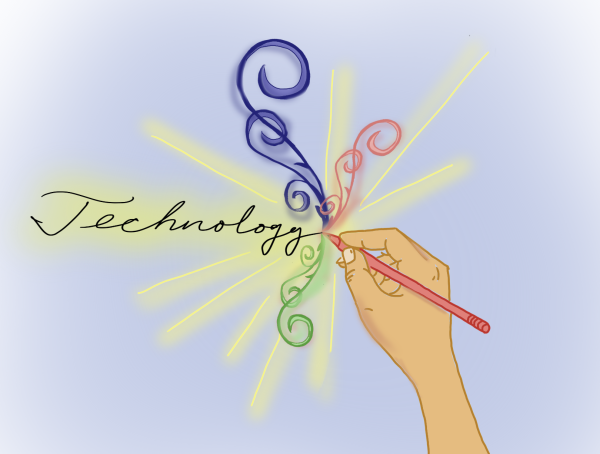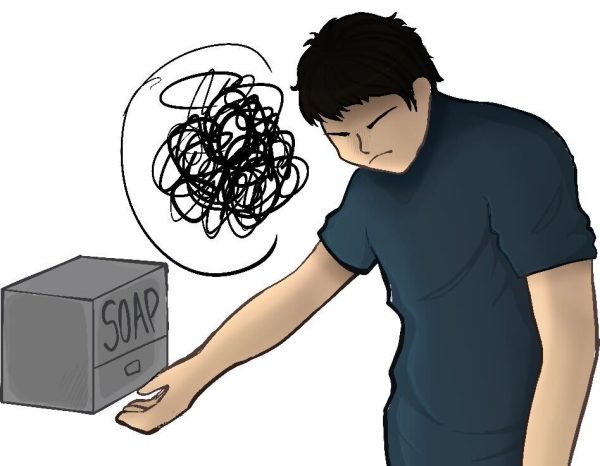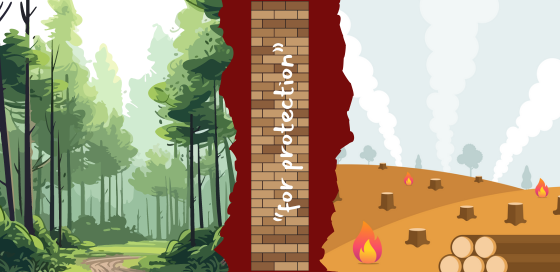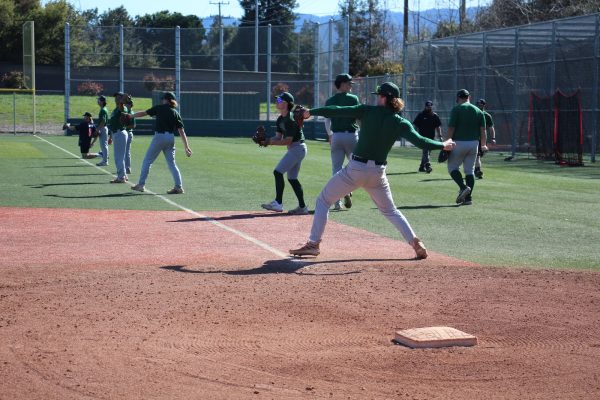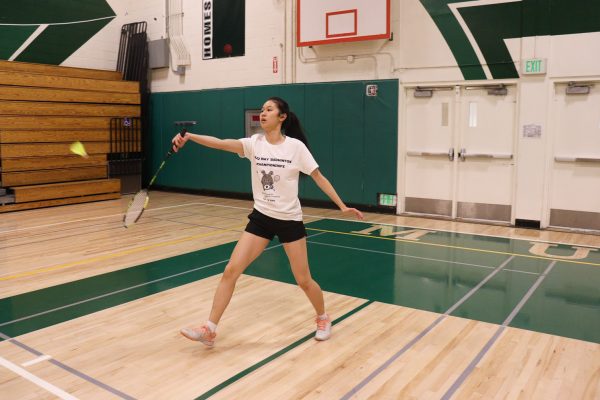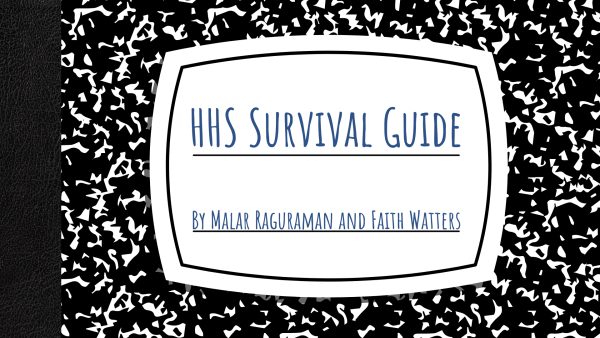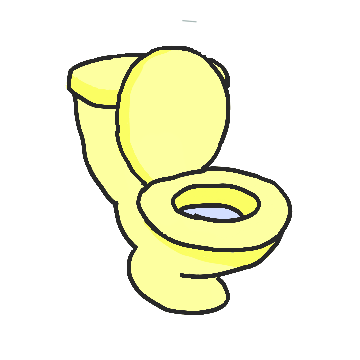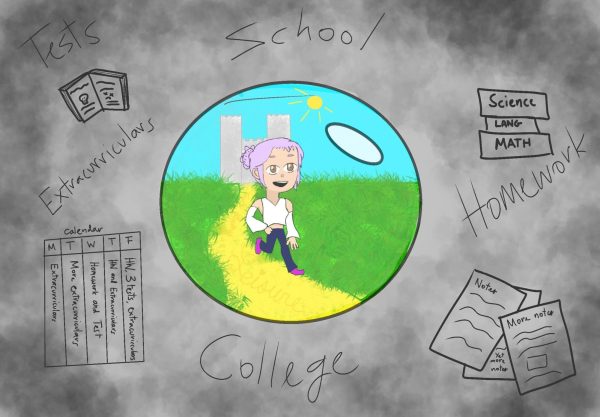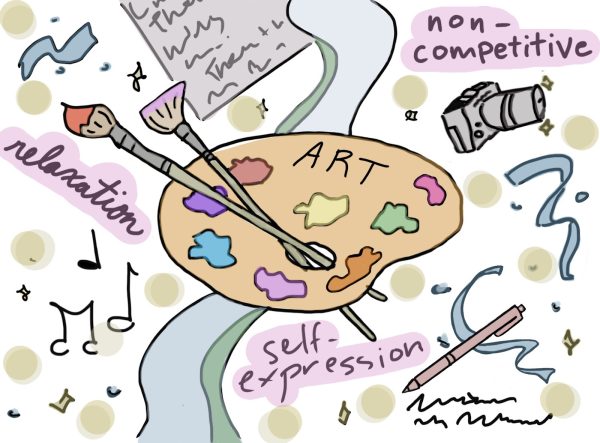The Melodic Line: What we can all learn from introverts in isolation
It goes without saying that self-isolation during a pandemic can be demanding. It is impossible to know when things return to normal — when the world buzzes with activity and an overwhelming urge to do something kicks in at every moment. Yet, for some introverts, staying at home does not mean that they are stuck at home, but instead liberated.
This is the moment for introverts to stand out in a world that often prizes hustle-and-bustle. Declining an invitation to get brunch with your friends in order to read a book under your comforter was once shunned. Now, it’s considered patriotic.
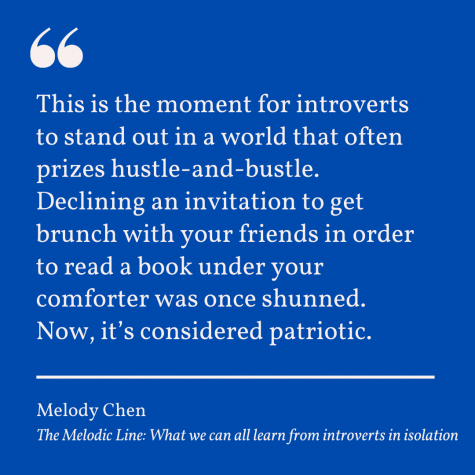
With so much newly acquired free time, introverts have every means to charge and recharge throughout the day. According to Susan Cain, the author of the best-selling novel “Quiet: The Power of Introverts in a World That Can’t Stop Talking,” the difference between an extrovert and introvert lies in what people find stimulating as opposed to exhausting.
Extroverts draw energy from being around people. When they are alone, they become mentally drained. Introverts are just the opposite. These already longtime practitioners of social distancing become energized when they are by themselves, reading a book or watching a TV show. They would rather engage in deep discussions or thoughts with a couple of listeners they are close with or by themselves. As Cain puts it, something good usually comes out of going deep.
Staying at home is a rare opportunity for introverts to concentrate their energy to one task at a time without becoming mentally drained. They have everything in their homes to be satisfied: a snack bar in the pantry, a reading nook in the corner and a yoga mat waiting on the floorboard.
Before the pandemic, the world has always belonged to extroverts. The social butterfly fleeting from friend to friend across the hallway is often well-liked than the taciturn student burrowed in a book. And recently, the quiet revolution — spearheaded by Cain herself — has been on the rise with hopes of recognizing the quiet but unwavering strength of introverts.
What better way are introverts more acknowledged than the present? This is not to say that introverts are better than extroverts, or vice versa; however, the nature of the two should be more closely defined as interdependent and equally important — one may not exist without the other.
Without extroverts, game nights and Netflix parties may never have existed amid a pandemic. And yet without introverts, we may never know all the secrets — yoga, gratitude journal, reading and baking — of staying sane at home.
The new lifestyle we must navigate during this time will never be the same in a pandemic-free world. Yet, it doesn’t hurt to incorporate the habits we learn now and make it something we can turn to when the world spins into a sort of deviation once again. Everyone has something to contribute in this world — whether they are introverts or extroverts — and it is important to acknowledge each other’s life choices during this time.
While the world is trying to correct itself to a new normal, we might as well believe that something good will come out of it at the end. After all, in the constant search for some meaning in the pandemic, we may satisfy our minds with new life choices we learn for the time being or an appreciation for the multi-dimensionality of humans.



